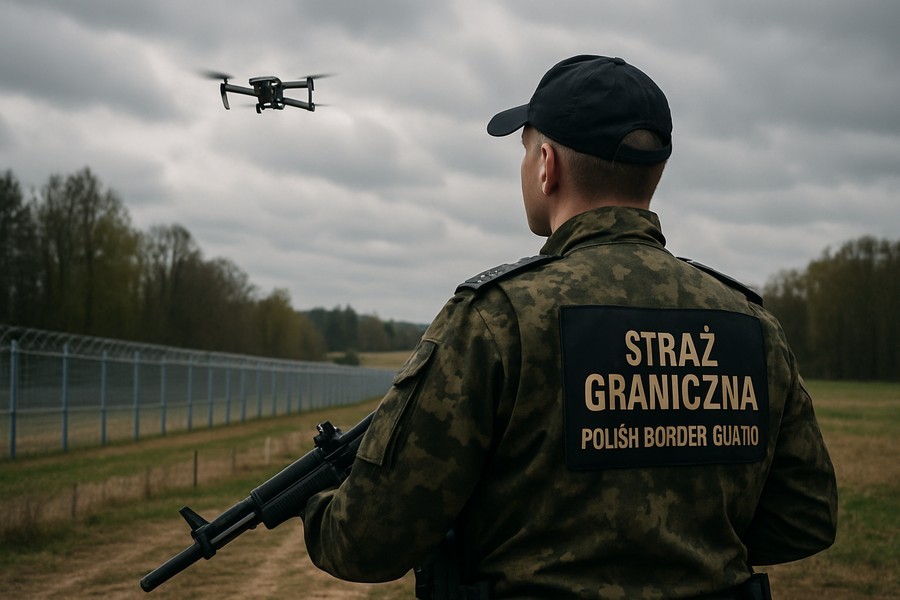
Understanding Poland's Response to Drone Intrusions
Poland has taken a significant stand against drone invasions from Russia by resorting to a crucial clause in the NATO treaty - Article 4. This move has raised eyebrows and generated discussions about the escalating tension between Russia and Ukraine.
This is the first occurrence of Russian unmanned aircraft breaching the airspace of a NATO member country since the Ukrainian conflict began. Russia claims it wasn't targeting Poland, suggesting that the drones might have deviated from their intended route. However, many European leaders are suspicious, believing the violation to be a deliberate act.
What Does Invoking Article 4 in the NATO Treaty Mean?
Article 4 of the NATO treaty enables any NATO member that feels threatened to request a consultation with the North Atlantic Council (NAC), the highest political decision-making body within the NATO alliance. While the NAC regularly meets, Article 4 allows for a special meeting to discuss the alliance's next steps in response to a perceived threat.
Although invoking Article 4 is a significant move, it doesn't have the same impact as invoking Article 5, the core clause of the treaty.
The Significance of Article 5
Article 5, often considered the essence of the NATO alliance, declares that an attack on one member state is considered an attack on all members. This provision calls for a collective response if any of the 32 NATO members request it. The treaty was established in 1949, and Article 5 is its centerpiece.
However, activating Article 5 doesn't automatically result in a collective response. The attacked country must specifically request the alliance to invoke the clause. Therefore, if Poland believes that Russian missiles were intentionally fired at them, they would need to make a formal request to activate Article 5.
America's Role in NATO's Decision-Making
If Article 4 is invoked, all NATO members, including the U.S., are expected to participate in discussions at the NAC. This could potentially lead to a joint declaration or a plan of action. On the other hand, if Article 5 is invoked, it would call upon the U.S. to assist in defending its European allies or Canada if they are attacked.
However, there's an essential caveat. Article 5 allows each ally to decide its course of action, meaning there's no predetermined response once the article is activated. For instance, if the U.S. president decides on direct military action, Congress would likely be involved, as only Congress has the power to declare war. But activating Article 5 doesn't necessarily call for a military response; the language of the treaty allows for a more nuanced reaction.
Historical Precedence of Invoking Articles 4 and 5
Article 4 has been invoked a few times over the years. For instance, Turkey invoked it due to concerns about cross-border terrorism during the Syrian War. Recently, eight NATO members in Eastern Europe invoked it following the Russian invasion of Ukraine.
On the other hand, Article 5 has been activated only once in NATO's seven-decade history. This happened the day after the 9/11 terrorist attacks on the United States.
Poland's Goal in Invoking Article 4
By invoking Article 4, Poland can express its security concerns to all NATO members. They are likely to use this meeting to highlight the multiple incursions by Russian military forces into the airspace of allies along the eastern frontier.
While some of these breaches might be due to pilot or operator errors, the frequent violations have led many Western observers to believe that Russia is deliberately encroaching on allied airspace. By bringing this issue to NATO's attention, Poland hopes to gain its allies' full support in responding more assertively to these violations.
Possible U.S. Reaction
The United States is expected to strongly support Poland's efforts to defend itself following this serious airspace violation. In a recent meeting, the U.S. reaffirmed its political and military commitment to Poland, suggesting that this support could even increase. There is also speculation that U.S. air defense units based in Germany might be deployed to Poland to strengthen its defenses. However, it's unclear whether such a request has been made.
